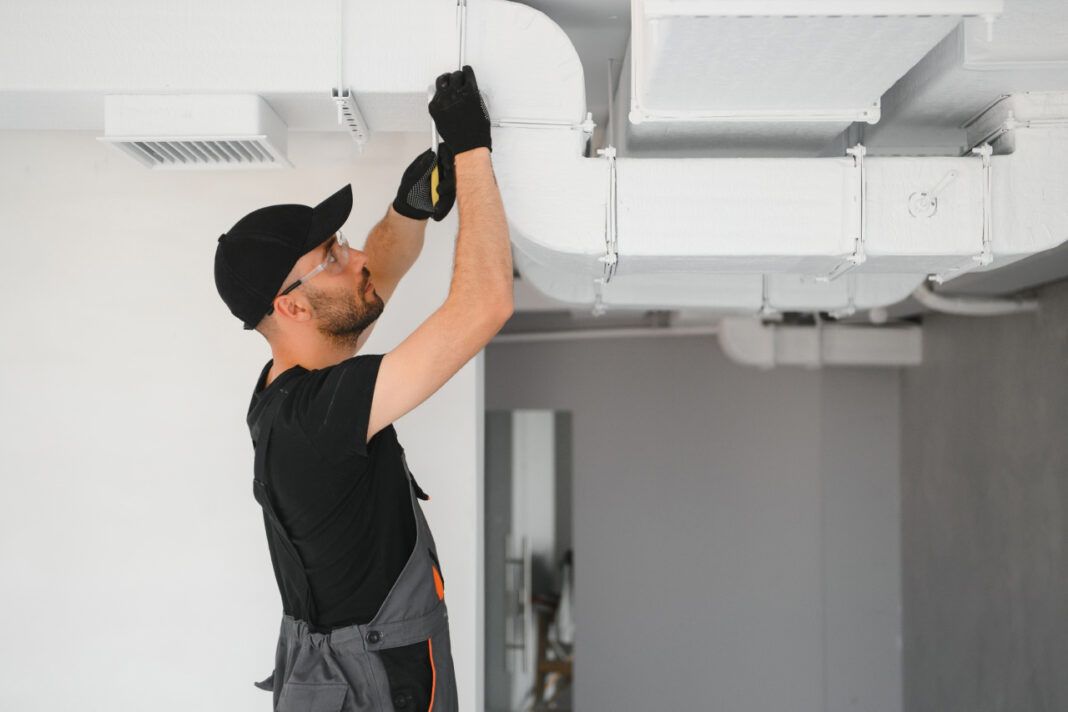A preventive maintenance program refers to scheduled upkeep for an appliance or a product. It is a contract between the owner of a product, appliance, or system and the service company that promises to inspect them periodically to check for potential damages, if any, and address them early on. Preventive maintenance programs are crucial for HVAC systems as they can help homeowners save on expensive repairs or replacements that may arise in the future.
Purpose of HVAC preventive maintenance
An HVAC preventive maintenance program aims to protect the complex heating, ventilation, and air conditioning systems and their components from any wear and tear, mechanical damage, or breakdown. By keeping the HVAC system in optimal condition during all seasons, the homeowner benefits from cheaper energy bills, plugging of energy leaks, and improving the longevity of an HVAC system. More importantly, it helps homeowners identify and prevent potentially expensive repairs like malfunctioning thermostats, refrigerant leaks, damaged components, and clogged ducts or drains.
Frequent maintenance tasks for an HVAC system
An HVAC system comprises multiple elements that are integrated with water and energy systems. The problems that may affect HVAC vary depending on the season. For instance, spring and summer months can bring varying upkeep challenges for HVAC systems. So, there are frequent maintenance tasks that homeowners will need to take up.
- Cleaning or replacing filters
- Cleaning condensers and outer units
- Replacing batteries and any worn-out spares
- Checking for leaks in the HVAC cabinet and look for blockages in drain lines
- Checking the thermostat and times
- Looking for any wiring damage by rats, squirrels and bird nests
Likewise, there are certain maintenance tasks that ensure the HVAC systems function smoothly during winter and fall months.
- Replacing heating system filters
- Checking gas pressure and signs of any leakage
- Lubricating all moving parts
- Clearing the drain lines to prevent clogging
- Checking whether the heating elements are working well
- Inspecting the flue systems thoroughly
Apart from these tasks, homeowners have to undertake certain other maintenance tasks periodically.
- Replacing the filter every three months
- Checking of refrigerant lines monthly
- Shutting water supply to humidifiers in summer
- Checking for carbon monoxide leaks and replacing batteries every six months
Given the complexity associated with HVAC preventive maintenance tasks, a homeowner won’t be able to complete them alone. While they can carry out some basic tasks, such as replacing filters, certain other measures involve the use of specialized equipment and technical knowledge. In such scenarios, hiring a professional contractor to carry out a proper and effective HVAC preventive maintenance program is advised.
Key components of HVAC preventive maintenance programs
Before signing a contract for an HVAC preventive maintenance program, a homeowner should be aware of the main components associated with the service to ensure they choose the program that best suits their needs.
1. Inspection and testing
As part of the HVAC maintenance program, technicians inspect the system according to pre-fixed schedules. While assessing the complete system, the professionals look for clogs and leaks in the ducts, as well as damage caused by wear and tear and corrosion. They also measure the airflow and temperature, inspect parts such as belts to determine if replacement is necessary, and examine pulleys, vents, and registers to ensure proper airflow.
2. Cleaning
Some parts need regular and periodic cleaning or replacement. As part of the HVAC preventive maintenance program, technicians clean or replace filters every three months or based on the system. They clean the evaporators and condensers to remove any dirt build-up. Furthermore, they are also entrusted with tasks like clearing drain lines and cleaning blowers and fans.
3. Lubrication
Technicians lubricate all moving parts, like bearings and motors. Doing so reduces friction, prevents intense wear and tear, and expands the life of the HVAC system units.
4. Refill refrigerant
Failure to periodically refill the refrigerant can affect the efficiency and functionality of an HVAC system, as incorrect refrigerant levels can lead to issues such as high energy intake, compressor failure, and low cooling capacity. An HVAC maintenance technician helps address these problems.
5. Calibrate thermostat
Technicians calibrate the thermostat to check if it is programmed correctly and shows accurate readings.
6. Review safety features
HVAC preventive maintenance programs also involve periodic inspections of safety features like carbon monoxide detectors, circuit breakers, and high-limit switches.
Things to check before hiring HVAC maintenance services
- Verify the credentials of the service by checking their licenses and industry certifications. Request documentation to confirm whether they hold permits from local agencies to perform these maintenance services. Ensure that their employees have the necessary insurance and bonds.
- Check their work ethic and history by running an internet search. Read the comments and reviews from other clients about their quality of work, adherence to schedules, and customer service. Confirm whether they use high-quality spare parts.
- Get estimates from multiple service providers, compare them, and analyze the cost breakdown and the service offered. Read about what is necessary for preventive maintenance and check if the company offers those specific services. Look for any additional or hidden costs for services not included in the contract.
- Ensure the technician hired has the relevant experience and licenses needed to perform such maintenance tasks.
- Check if the service company or contractor offers any emergency service in case of unexpected breakdowns.
- Ensure that the contracts clearly outline the services offered.
- Check if the company assists with insurance claims for some replacement and spares that are covered by homeowner’s insurance.
